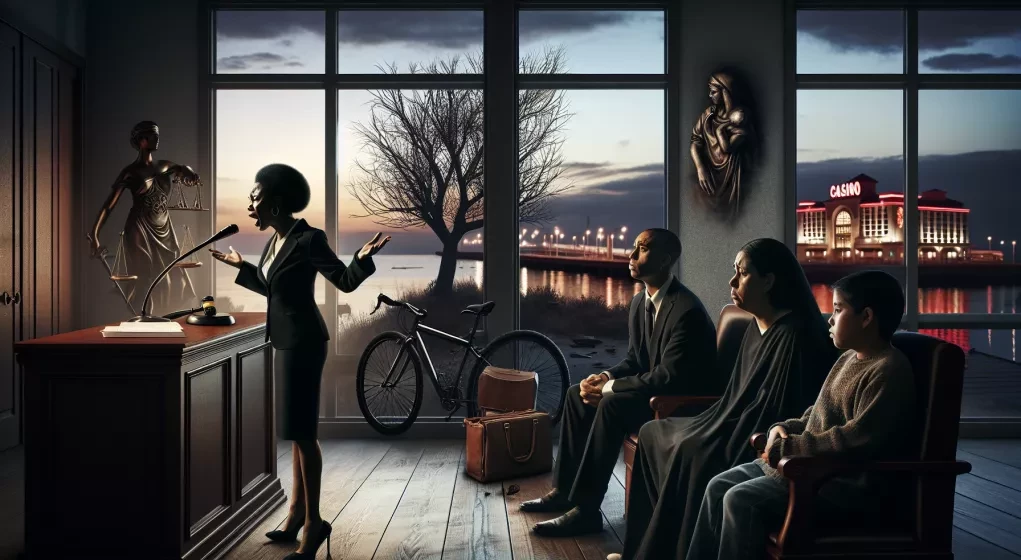In the shadow of the sprawling metropolis, under the discerning watch of the Los Angeles Superior Court’s austere facade, a tale of tragedy and controversy unfolds. At the heart of this narrative lies the Bicycle Casino in Bell Gardens, California—once a buzzing hive of chance and excitement—and Jonathan Jung, whose life’s yarn was abruptly cut amidst the flashing lights and clatter of baccarat chips.
This week, the stage was set for a grievous confrontation with justice as Jonathan’s family, through their counsel Terrance Jones and Minh Nguyen, entered a spirited battle of narratives against the legal protectors of the casino’s interests. The very fabric of truth is contested, as allegations rise like specters over the casino’s actions—a man, the plaintiffs argue, was ensnared and stifled under the crushing weight of security guards’ bodies on the unforgiving pavement of the casino’s parking lot.
In this legal theater, a dichotomy of tales vies for the spotlight. Plaintiffs portray a tableau of Jung speaking in hushed tones to unseen phantoms at the baccarat table, his mind ensnared by private demons, only to be escorted outside, his footsteps heavy with $3,800 of untapped fortune left behind. Allegedly, a mere three minutes under the guards’ hold—a knee pressed into his back—snuffed out his breath, leaving his story to be told in his stead by those mourning his loss.
Yet the casino, set firm against the tidal wave of accusations, paints an entirely different scenario. Jung, they claim, chased by the specter of methamphetamine toxicity, was a man possessed by erratic movements and volatile danger. In their narrative, the guards were but sentinels doing battle with an unpredictable force, attempting capture, never constricting his life away, as the man fled into the open arms of the parking lot’s pavement.
The pen of justice will sketch an arduous path for the jurors, guided by Judge Patrick Madden, to traverse the labyrinth of competing realities. With a treasure trove of $132 million on the line—painstakingly quantified into a million dollars per each alleged second of wrongful restraint—the bereaved family’s quest for reprieve will hinge upon simmering arguments, surveillance shadows, whispered confessions of autopsy secrets, and the shifting sands of witness recollections.
A courtroom drama fit for the ages pledges to spill its secrets and tensions across the months, with a denouement promised by the calendar’s turn to July. As the saga unfurls, one truth remains unwavering—the somber reckoning of justice will not yield until the final echo of the judge’s gavel falls silent.






